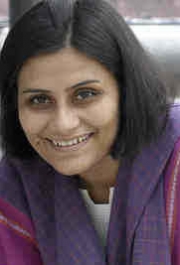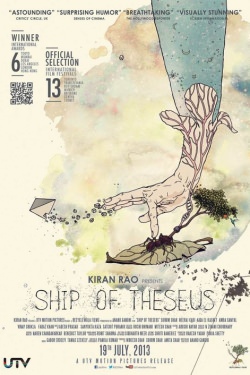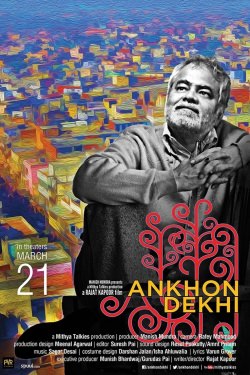Top Rated Films
Namrata Joshi's Film Reviews
-
Perhaps it’s my own fatigue with the Bond franchise and the knowledge of exactly where it will go and how things will turn out that makes the old-fashioned and nicely campy Spectre not as gripping a ride as I would have wanted it to be.
-
No family is quite happy in Behl’s imagination. Least of all the overtly happy one – that of Prince. You know that all the loving is built on a foundation of lies and delusions. Despite that the film does try and leave us on a note of change. Titli talks to Neelu about starting all over again in their relationship and rebuilding their family from the scratch. A talk that comes loaded as much with hope as it does with scepticism. There can be no clean ends and closures in the world of Titli.
-
…Sengupta fashions a lovely tale of love in times of recession. It’s about routinised work lives, the loneliness of living in shifts in your own homes, of being a family, yet not knowing the pleasures of eating and living together. But hope lives.
-
Much of the power of Chauthi Koot is in that which is not spelt out or spoken of, but which the audience is made to feel and live through, along with the characters — their lives and relationships — on screen.
-
One of the most beguiling films of recent times, Qissa captivates even as it confounds.
-
At times, Sulemaani Keeda feels like an in-group Versova film that needed more to say hello to the world. At others, it feels yet another variation of Luck By Chance, albeit from the margins. It didn’t stay with me for long.
-
… this sense of whimsicality and romance within the absurd and a simultaneous assertion of the ludicrosity of romance that I found most interesting. However, instead of dwelling more on this delicious dichotomy, the film goes deliberately overboard on the kinkiness and becomes over-indulgent with the loudness and farce. It entertained while it lasted but hasn’t stayed on with me for long.
-
Mary Kom plays out as a simple, unpretentious tale that picks up and dramatises important incidents from the champion’s life. The frenzy and excitement of a Raging Bull or Million Dollar Baby may not be there. However, the essential message speaks out loud.
-
Mishra, as the patriarch, Bauji, is the fulcrum and spine of the film. At once mercurial and patient, crazy yet sane, it’s a character difficult to pull off and Mishra literally internalises it. Seema Pahwa as his hyper, nagging yet loving wife is just as pitch-perfect. So are the rest. Maya Sarao as the live-wire daughter is a revelation. The relationships are convincingly handled. Be it the father-daughter bonding after a fight or the brothers falling apart. They feel so real that they could well be happening in your own family.
-
It’s in how Mehta captures the psyche of the Indian Muslim in the changing, increasingly polarised India. Shahid’s lower-middle-class Muslim family, its highs and lows, togetherness and differences, are portrayed with warmth and simplicity.

























